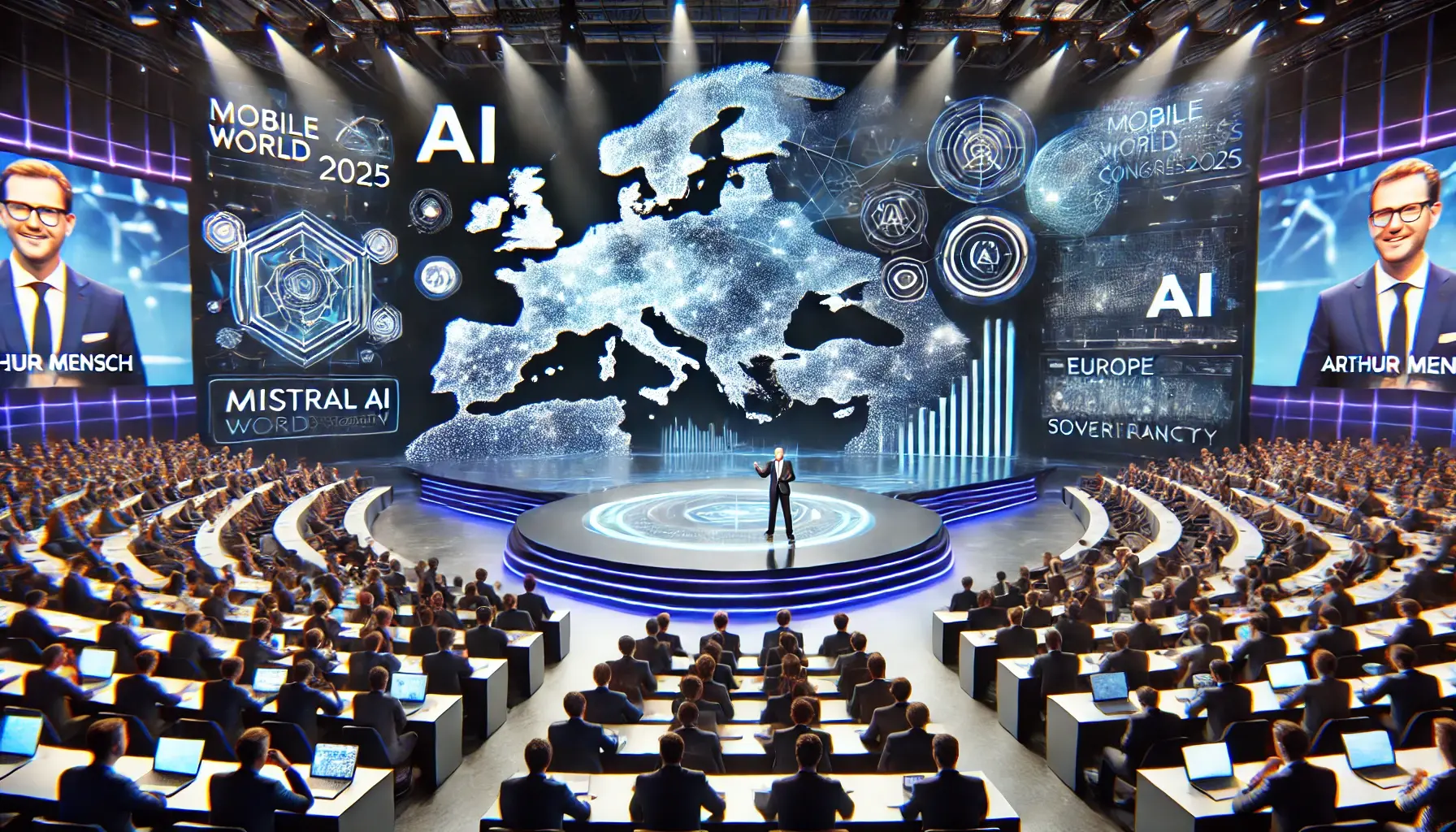Artificial Intelligence
MWC 2025: Mistral’s Mensch on an AI mission
ARTHUR MENSCH, CEO of Mistral AI, is calling for Europe to take charge of its AI future, warning that reliance on US technology is no longer sustainable.
Arthur Mensch, CEO of Mistral AI, is not one to mince words. Standing before an audience at Mobile World Congress (MWC) 2025, he delivered a message that was both urgent and defiant: Europe must take control of its AI future.
For too long, he argued, the continent has leaned too heavily on American technology, leaving its enterprises vulnerable to what he called “volatility” in the United States. The wake-up call, he said, has already come, and European businesses are now scrambling to build an AI infrastructure that ensures independence.
“Europe has a lot to offer,” said Mensch. “We have the expertise, the infrastructure, and the demand. What we need is the ambition to build AI ecosystems that can stand on their own.”
The shift is already underway, he said, with European enterprises showing greater willingness to integrate AI solutions developed within their own borders. This trend, he argued, is crucial not just for competitiveness but for ensuring Europe’s technological sovereignty in an industry currently dominated by the US and China.
The conversation around AI, said Mensch, too often revolves around those two global superpowers.
“It feels like the conversation around AI is in the US and China, and Europe sometimes gets left out of that conversation.”
But, he argued, that is changing. The momentum behind AI projects on the continent is growing, and infrastructure investments are following suit. In particular, Mensch pointed to Europe’s strengths in the energy sector, saying that AI presented an opportunity to decentralise cloud computing and “make sure that there are more actors in the field.”

Arthur Mensch, CEO of Mistral AI.
One of the most intriguing possibilities Mensch raised was the potential for European telecom operators to become hyperscalers, leveraging their vast fibre networks to establish AI-ready data centres.
“To build a data centre for AI, you need three things. You need the electronics, you need the fibres, and you need the chips. Telcos already have the fibres, so they’re already involved in the data centre discussions and so on.”
In his view, this is an opportunity that European telecoms cannot afford to miss. Mistral AI is already playing its part in building European AI infrastructure, with Mensch citing the company’s work in France as an example.
“The energy grid is excellent, prices are good, and the technical competences are also strong. We would gladly partner with telcos on that domain.”

Photo courtesy Mistral AI.
Mensch also highlighted a partnership with Orange, aimed at using AI for predictive maintenance and network efficiency. He positioned AI as an essential tool for telecoms operators, not just for customer-facing applications but for optimising their own operations and reducing costs. The message was clear: AI is not just about innovation; it is about economic efficiency, and European firms must embrace it to remain competitive.
While some worry about overregulation in Europe stifling AI growth, Mensch downplayed these concerns. He pointed instead to market fragmentation as the continent’s greatest challenge, suggesting that Europe’s patchwork of telecom operators complicates large-scale AI deployments. However, he believed that recent US policy shifts have accelerated European AI ambitions, forcing the European Commission to rethink its approach.
“There is a need to transition beyond regulation to actively nurturing AI development in the region.”
Despite these challenges, Mensch remained optimistic about the future of AI in Europe. He envisioned a future where AI is deeply embedded in consumer technology, creating new opportunities for distribution partnerships between AI providers and telecom operators.
“There are opportunities to make distribution partnerships with the telecom industry to make sure that everybody has access to strong AI systems.”


















